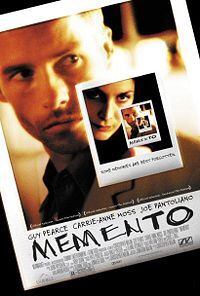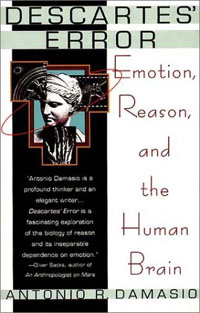Check out the cool artwork (click on the image for a larger version) above by Richard Lim Boon Keat and used with his permission here. Apparently he’s a Malaysian artist who’s worked on a number of game projects. I discovered his website through Armageddon Empires, a game by QT3 forum member Vic Davis, which is a notable indie gem combining wargame and collectible-card game mechanics. It deserves a post of its own, but I’ll have to spend more time on it before I have much to say on it.
All posts by Wan Kong Yew
Favourite Films
Favourites lists are tricky things, whether they’re for books, films, games, songs or something else. People often rank a particular work highly merely for its personal nostalgia value. Fair enough, but don’t expect the same sentiments to reverberate in the reader. Other works might seem to deserve a place in the rankings because it was innovative in its day even if the techniques it pioneered has since been replicated and even improved upon elsewhere. Jurassic Park with its use of CGI is one such example for me: I shall never forget that magical first sight of the magnificent brachiosaurus towering above the awestruck humans while docilely munching from a tree.
Another reason to rank a film highly is because you enjoy watching it over and over again. Yet however much I enjoy action films like Raiders of the Lost Ark or The Matrix, I have reservations about including them in my list of favourite films. It feels to me that a film needs to be something a little more profound and substantial to merit special mention.
With all this in mind, here’s a selection of five of my favourite films, arranged in no particular order. They’re favourite films to me in the sense that I like them a lot, that I like others to watch them and hear what they think of them and that I greatly admire the people who crafted them and wish that I had a modicum of their talent. Do note however that I watch fewer films that I probably ought to so my list is only drawn from a fairly small sample. Spoilers follow by necessity.
 Memento
Memento
I don’t have much to add that hasn’t already been said about Memento. The reverse chronological order of one of its two narratives strikes some as gimmicky, but I think that it is essential to placing the viewer in the shoes of the confused Leonard Shelby. The way the two narratives, one in colour, the other in black-and-white, merges into one as the film inexorably approaches its dread-filled climax is stylistically brilliant and makes the progression of the film feel like an unraveling puzzle.
Philosophically, it’s true that the film isn’t that deep, but the way it raises the questions of how central memories are to human personality and how easily we lie to ourselves in order to protect our own self-image is chilling. The people around Shelby viciously abuses his condition for their own ends, and director Christopher Nolan seems at first to draw audiences to be sympathetic to his unique plight through scenes such as Shelby’s Sisyphean efforts to expunge his pain of losing his wife by destroying mementos of their life together. But ultimately it is Shelby’s own willingness to manipulate himself just as callously and cynically as his abusers that is the greatest tragedy.
Cadaver Calculator
World of Evecraft
Jim Rossignol at Rock, Paper, Shotgun recently made a post laying out a theoretical game that merges the generic fantasy appeal of World of Warcraft with the flat, level-less design of Eve Online. It’s not an altogether original idea, and I suspect that most players who have tried both games will have hazily imagined such a chimera sooner or later.
There are obvious contradictions with this basic design: Eve Online is all about the complex interactions between its players that its mechanics allows and the profound way that these interactions can shape the universe they inhabit. As such the Eve universe is appropriately enough a mostly blank expanse of interstellar space populated by planets, moons and asteroid belts. World of Warcraft on the other hand derives its appeal in large part from its aesthetics, in the form of player avatars, the environments they live their adventures in and the plethora of enemies that they fight. It’s part of what makes it “compelling and immediate” as Rossignol writes. It’s not obvious to me that the intersection of these two different groups of players constitutes a broad enough player base to commercially justify such a game given the resources that would be required to give a Eve-like game WOW-like eye candy. As an exercise in theorycrafting though, it’s great fun to speculate on the many ways that WOW would need to be changed to make it more like Eve.
A Book: Descartes’ Error
Contrary to traditional scientific opinion, feelings are just as cognitive as other percepts. They are the result of a most curious physiological arrangement that has turned the brain into the body’s captive audience. Feelings let us catch a glimpse of the organism in full biological swing, a reflection of the mechanism of life itself as they go about their business. Were it not for the possibility of sensing body states that are inherently ordained to be painful or pleasurable, there would be no suffering or bliss, no longing or mercy, no tragedy or glory in the human condition.
-Antonio R. Damasio in Descartes’ Error

Descartes’ error, as meant by neurologist Antonio R. Damasio in this book, and one that has insinuated itself deeply into mainstream thought, is as he puts it: “the abyssal separation between body and mind, between the sizable, dimensioned, mechanically operated, infinitely divisible body stuff, on the one hand, and the unsizable, undimensioned, un-pushpullable, nondivisible mind stuff; the suggestion that reasoning, and moral judgment, and the suffering that comes from physical pain or emotional upheaval might exist separately from the body. Specifically: the separation of the most refined operations of mind from the structure and operation of a biological organism.”
In other words: thinking is inescapably a biological process. It is expressly not true, as many people take for granted, that “thinking, and awareness of thinking, are the real substrates of being.”
Baby’s First Fall
Baby’s First Fall was my first and so far only published piece of fiction. It was kindly accepted for publication by Gary Markette at Anotherealm. I’m glad to see the site is still alive and well five years later and the story itself still available for reading online, even if he did call me Mr. Yew.
The story is the only decent thing of mine that came out of my participation in the now defunct Del Rey Online Writing Workshop. According to the website of Ellen Key Harris-Braun who apparently constructed the site for Del Rey, it was an early example of the community peer-review environment that is widely prevalent today and attracted over 8,000 members at its height.
A Book: Diaspora
Where do we go from here? History can’t guide us. Evolution can’t guide us. The C-Z charter says understand and respect the universe… but in what form? On what scale? With what kind of senses, what kind of minds? We can become anything at all – and that space of possible futures dwarfs the galaxy. Can we explore it without losing our way?
-Greg Egan in Diaspora

Australian writer Greg Egan has consistently produced some of the most innovative, ambitiously speculative and technically rigorous science fiction stories of the 1990s. As an avid fan of the genre, my opinion is that Egan’s influence in the field goes far beyond what is evident in simple sales volume or media attention since many other writers seem to have taken note of his style and have attempted “Eganesque” stories or novels of their own. With his sixth novel, Diaspora, he probes the future of humanity, going farther than any other writer has ever gone before.